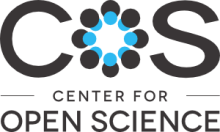Resource information
This study aims to examine current land access and youth livelihood opportunities in Southern Ethiopia. Access to agricultural land is a constitutional right for rural residents of Ethiopia. We used survey data from the relatively land abundant districts of Oromia Region and from the land scarce districts of Southern Nations, Nationalities and Peoples’ (SNNP) Region. We found that youth in the rural south have limited potential to obtain agricultural land that can be a basis for viable livelihood. The law prohibits the purchase and sale of land in Ethiopia. We found that land access through allocation from authorities is virtually nonexistent while land that can be obtained from parents through inheritance or gift is too small to establish a meaningful livelihood. The land rental market has restrictions, including on the number of years land can be rented out. Perhaps as a result of limited land access, the youth have turned their back on agriculture. Our study shows that only nine percent of youth in these rural areas plan to pursue farming. The majority are planning non-agricultural livelihoods. We also found a significant rural-urban migration among the youth and especially in areas with severe agricultural land scarcity. Our econometric analyses show that youth from families with larger land holding are less likely to choose non-agricultural livelihood as well as less likely to migrate to urban areas. We suggest here some measures to improve rural livelihood such as creation of non-farm employment opportunities and improvement of land rental markets. We also argue that as a certain level of rural-urban migration is unavoidable, investigating youth migration is essential to design policies that help the migrating youth as well as the host communities. Youth unemployment, youth livelihood, rural livelihood, migration, Ethiopia, land access, youth land access


